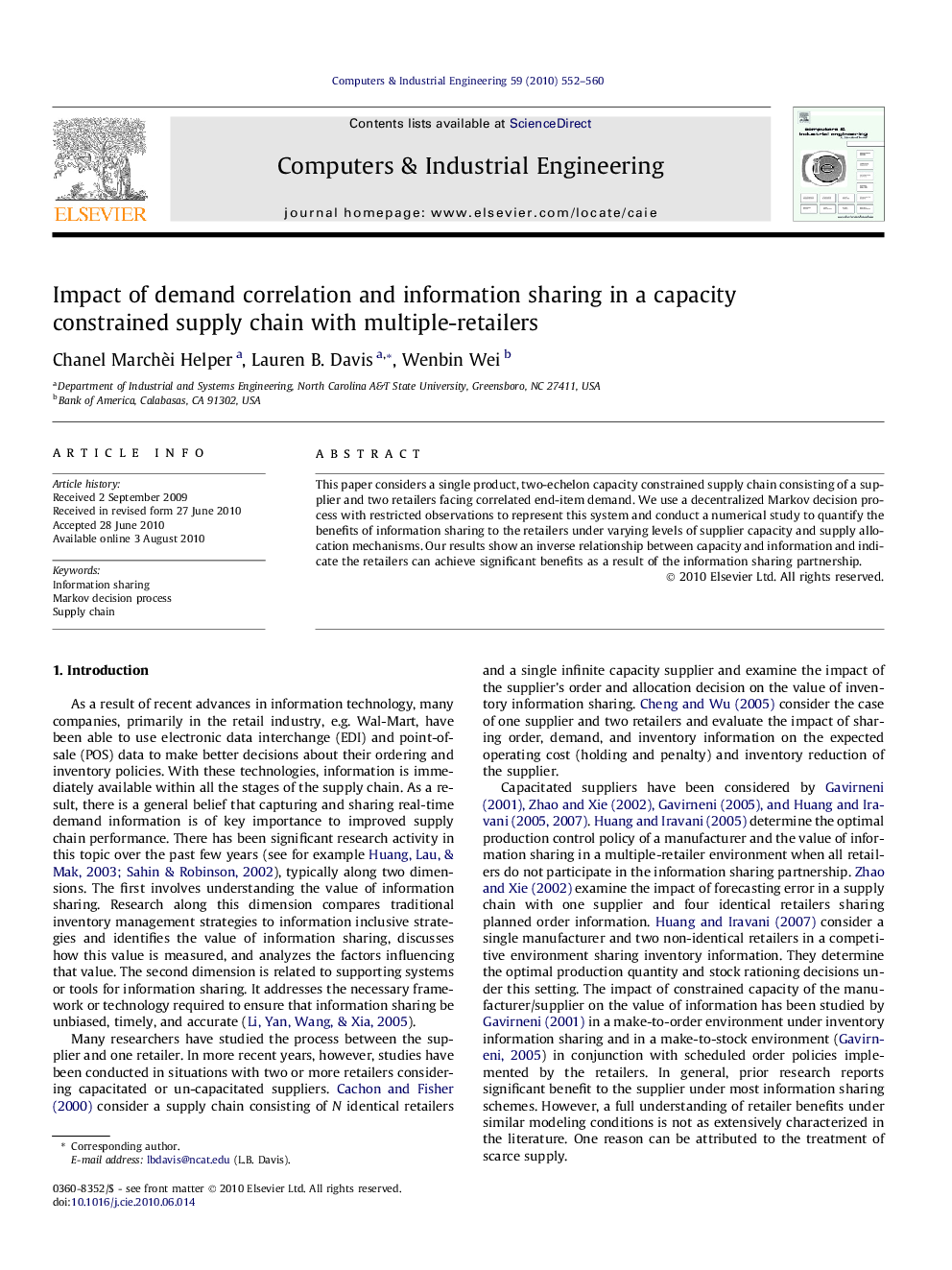| Article ID | Journal | Published Year | Pages | File Type |
|---|---|---|---|---|
| 1134704 | Computers & Industrial Engineering | 2010 | 9 Pages |
Abstract
This paper considers a single product, two-echelon capacity constrained supply chain consisting of a supplier and two retailers facing correlated end-item demand. We use a decentralized Markov decision process with restricted observations to represent this system and conduct a numerical study to quantify the benefits of information sharing to the retailers under varying levels of supplier capacity and supply allocation mechanisms. Our results show an inverse relationship between capacity and information and indicate the retailers can achieve significant benefits as a result of the information sharing partnership.
Related Topics
Physical Sciences and Engineering
Engineering
Industrial and Manufacturing Engineering
Authors
Chanel Marchèi Helper, Lauren B. Davis, Wenbin Wei,
